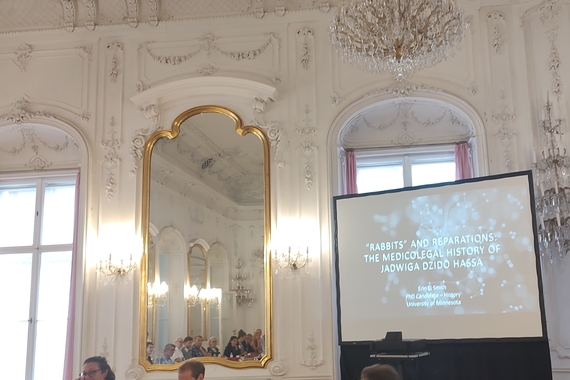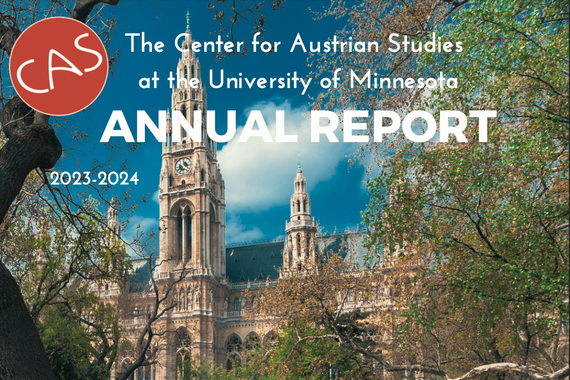2023 Rath Prize Winner Announced
The 2023 Rath Prize was awarded to Corenten Gruffat (EUI) for his article, “The Beautiful Public Danube: Water Uses, Water Rights, and the Habsburg Imperial State in the Mid-Nineteenth Century."
From the Laudatio: The committee commends the author for his innovative intervention at the intersection of environmental history, legal history, and debates about private interests and natural resources. Tracing the decades-long emergence of the 1869 Imperial Law on Water, the author deftly investigates the legal concepts and economic considerations that underpinned the debates over the management of water resources in the context of the consolidation of Habsburg state power and the liberal pursuit of maximizing economic productivity. “Public good,” rather than a simple binary between private property and the "commons," was the legal form of an ideal where private interests and the liberal state converged. This principle informed state management of Cisleithanian rivers as an economic resource. The committee especially congratulates the author for not only contributing to the burgeoning environmental history of the Habsburg realm but also bringing the latter to the study of property regimes and environment today, thus showing the relevance of Habsburg history beyond the confines of nationalism studies.
The article analyzes an 1869 law from Cisleithania that defined all running waters as public goods. Economic and political actors debated the issue of water rights over several decades in the mid-nineteenth century, as is shown in contemporary publications, proceedings of assemblies, and administrative archives. The legal solution that was ultimately adopted established the management of water rights and uses according to a particular form of property which was intentionally preferred over a system of private appropriation. Looking in detail at what “public good” meant for the actors, this article argues that settling the legal status of rivers served to both consolidate the imperial state’s power over society and to make water resources available to a productivist economic system. The new relationships to the environment that emerged during this time were inseparable from contemporary political and economic developments, and legislating was one way to bind these aspects together. Moreover, the case of water rights in the Habsburg Empire adds nuance to binary oppositions between private property and commons that dominate the study of property regimes and environment today. It invites us to consider how the establishment of a productivist economic system rested on a combination of different forms of property and strong state intervention.
Gruffat is a PhD researcher at the European University Institute in Florence (Italy). He previously studied history at Sciences Po in Paris, where he conducted research on the history of rivers in the Habsburg Monarchy under the supervision of Giacomo Parrinello. His research interests include more broadly environmental, economic and political history, with a special focus on the nineteenth-century Habsburg Monarchy. His ongoing thesis, under the supervision of Pieter Judson, explores the politics of animal husbandry improvement, and their environmental implications."
The committee also recommended Anastazja Maria Grudnicka’s “Game of Scipios: Habsburg Interpretations, Adaptations, and Uses of Scipio Africanus in Early Modern Europe” as a work worthy of honorable mention. The committee stated that the article exemplified "compelling scholarship that combines visual and textual sources, and uncovers an intriguing intra-dynasty rivalry through a careful study of the visual representation of Habsburg power."
Congratulations to both for their scholarly achievements!
About the Rath Prize: established in 2001, the Rath Prize is awarded annually for the best article published in the Austrian History Yearbook (AHY). The award is funded by the estate of Habsburg studies scholar and founding editor of the AHY, R. John Rath (1910-2001), and by contributions given in his memory. Previous winners of the Rath Prize can be found on the Center's website.
If you would like to support the Rath Prize Fund with a donation, you may do so on our fundraising page, or by contacting Peter Rozga (Office of Institutional Advancement) at rozga001@umn.edu


